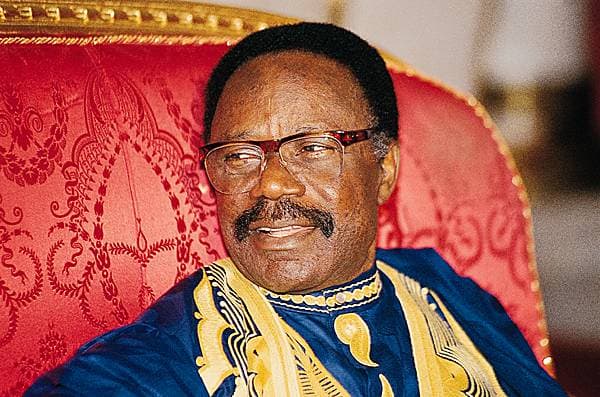Omar Bongo: A Legacy of Power and Patronage in Gabon
Advertisement
The name Omar Bongo resonates through the annals of Gabonese history, symbolizing an era of prolonged leadership, economic complexities, and the art of political patronage. As we delve into the life and rule of El Hadj Omar Bongo Ondimba, his fame, lengthy presidency, and the mixed assessments of his tenure come into focus.
Born Albert-Bernard Bongo on December 30, 1935, in Bongoville, Gabon, Omar Bongo’s ascent to power marked a turning point in the nation’s history. As Gabon’s second president, Bongo reigned for nearly 42 years, from 1967 until his passing in 2009. This remarkable tenure positioned him as one of the world’s longest-serving non-royal leaders, capturing global attention and raising questions about his legacy.
Bongo’s death in 2009 was met with profound mourning in Gabon. The country declared a month of mourning, and his state funeral garnered international attention, with 15 world leaders in attendance, including the president of France. His demise marked the end of an era marked by a unique style of governance and economic strategies that both fueled and challenged Gabon’s development.
Advertisement
Bongo’s rule was punctuated by a mix of achievements and controversies. His rise to power came alongside Gabon’s ascent to become Africa’s third-largest oil producer, providing him with a reservoir of resources to navigate the political landscape. His adeptness at using patronage as a tool of control showcased his political genius. Rather than relying on force, he utilized petrodollars to maintain a bloated civil service, ensuring a significant portion of the state’s wealth reached the populace, thereby keeping most of them fed and clothed.
Infrastructure projects, including the construction of the Transgabonais railway line, were emblematic of his approach. The emphasis on infrastructure, however, coexisted with economic complexities, leading to debates about the sustainable utilization of Gabon’s natural resources. Despite challenges and debates, Bongo’s legacy was intertwined with his ability to rule largely unchallenged, even as he grappled with questions about economic sustainability and the nation’s future.
Yet, his legacy is one of contradictions. While he successfully navigated the political landscape and maintained a semblance of stability, concerns about the equitable distribution of wealth, management of natural resources, and Gabon’s long-term economic prospects were persistent.
Bongo’s reign, marked by his longevity and use of patronage, will forever be part of Gabon’s history. His story serves as a reminder of the complex interplay between leadership, resource management, and the delicate balance between power and public welfare. The tale of Omar Bongo invites reflection on the multifaceted nature of governance and the indelible impact leaders leave on the nations they guide.


Leave a Reply